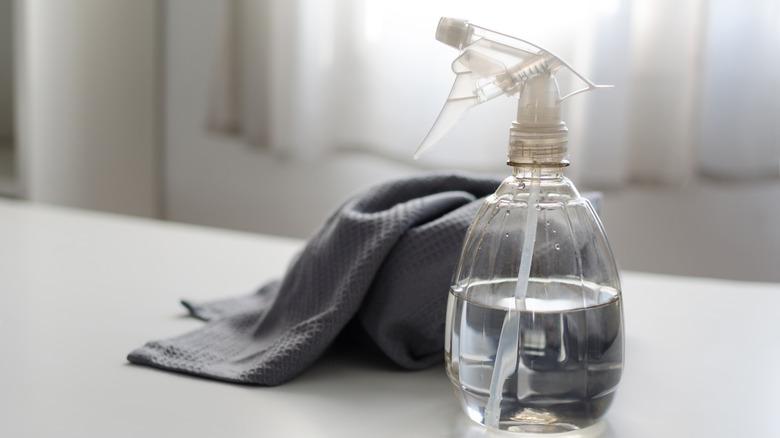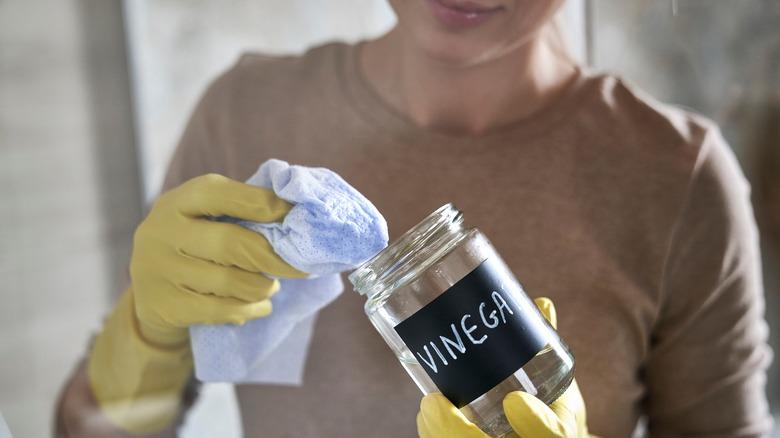Here's Why Vinegar Cleaning Hacks Are Everywhere Now (& A Few You Should Try)
What other liquid can come close to touching the versatility of vinegar? It is used for cleaning, disinfecting, polishing, descaling, degreasing, repelling insects, absorbing odors, and even killing weeds. It can also be used in multiple ways as a cooking ingredient for flavoring, fermenting, and preserving.
It must be really expensive, you say? Nope! Then it must be incredibly bad for the environment. Nope again! It's not only affordable, but it's nontoxic and all natural. Almost everyone has a bottle of vinegar sitting around their home.
You've probably seen multiple cleaning hacks about vinegar's beguiling properties as people look for more eco-friendly ways to say goodbye to traditional, chemical-filled multi-purpose cleaners. No wonder it's everywhere now. Some hacks, like cleaning scissors or paintbrushes, are ones worthy of trying.
This seemingly miraculous liquid comes from the French words "vin aigre" for "sour wine" and is produced by a double-fermentation process. It was introduced around 2000 B.C., making it one of the original fermented products. White vinegar is made up of acetic acid and water, with an acidity of about 5% and a pH of about 2.5, meaning it's highly acidic. Enough so that it can dissolve baked-on stains and other pesky issues like limescale, but not so acidic that it will eat through most surfaces or fabrics. A few exceptions where vinegar might not be the answer are surfaces such as some tiles, stones, and rubber seals on appliances, so it's best to be careful and consider alternatives.
Try these unconventional cleaning hacks using vinegar
As vinegar has its moment in the spotlight, there is one significant character flaw: a somewhat astringent bouquet — that distinct, pungent odor. Fragrance aside, vinegar may just be the eco- and budget-friendly homemade cleaning solution you need in your life. The internet is filled with hundreds of vinegar cleaning hacks, tips, and tricks, but these are the ones we found worth trying that are a little off the beaten path.
It's no secret that vinegar works like a champ to achieve streak-free windows.It's reasonable, then, to imagine that it also works great on electronics glass. Use it to clean laptop and phone screens, but only with a diluted solution — never use straight vinegar. Simply make a 1:1 solution of water and white vinegar, and apply with a soft cloth or sponge to remove those stubborn smudges and splatters. And when your kitchen shears or your favorite scissors get sticky or stained, wipe some pure white vinegar on them with a soft cloth, paper towel, or cotton ball. This is a better alternative than straight water or soapy water, which could cause the blades to rust.
Vinegar is also a great rescue tool for dirty paintbrushes. Hardened-on paint can be dissolved with a vinegar bath. Simply soak the brush in pure white vinegar for an hour (or more if needed). If all of the paint still doesn't dissolve, you can try boiling the brush in the vinegar for a few minutes and then using an old comb to loosen the dried paint in the brush.

